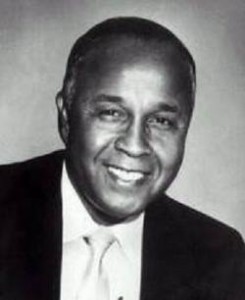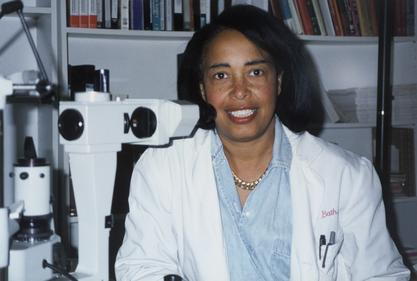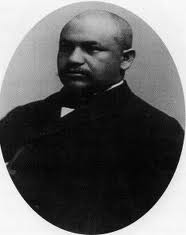Black History, Medicine

Louis T. Wright
1891-1952. A physician and surgeon, Dr. Louis T. Wright originated a method of operating on fractures about the knee joint, a brace for fractures of the spine, and a vaccination against smallpox, and supervised the first test of a miracle drug(aureomycin) on humans. He also advanced a new theory on the treatment of skull fractures and engaged in early cancer research.
Graduating with highest honors from the Harvard Medical School in 1915, he was commissioned a 1st Lieutenant in the Medical Section of the Officers Reserve Corps in 1917, and rose to the rank of Lieutenant Colonel in the U.S. Army during World War I. In 191, he became the first African American to be appointed to a New York City Municipal Hospital(Harlem Hospital) where he helped lower the death rate and increase the professional standards.
Black History, Firsts, Medicine

Rebecca Lee Crumpler
Rebecca Lee Crumpler challenged the prejudice that prevented African Americans from pursuing careers in medicine to became the first African American woman in the United States to earn an M.D. degree, a distinction formerly credited to Rebecca Cole. Although little has survived to tell the story of Crumpler’s life, she has secured her place in the historical record with her book of medical advice for women and children, published in 1883.
Crumpler was born in 1831 in Delaware, to Absolum Davis and Matilda Webber. An aunt in Pennsylvania, who spent much of her time caring for sick neighbors and may have influenced her career choice, raised her. By 1852 she had moved to Charlestown, Massachusetts, where she worked as a nurse for the next eight years (because the first formal school for nursing only opened in 1873, she was able to perform such work without any formal training).
In 1860, she was admitted to the New England Female Medical College. When she graduated in 1864, Crumpler was the first African American woman in the United States to earn an M.D. degree, and the only African American woman to graduate from the New England Female Medical College, which closed in 1873. (more…)
Black History, Medicine
![caduceus[2]](https://blackusa.com/wp-content/uploads/2012/10/caduceus2.jpg) Wilcie Elfe is the earliest known pharmacist. He graduated from the Avery Normal Institute in Charleston. Elfe worked at People’s Pharmacy, and his prescription logbook dates back to 1853.
Wilcie Elfe is the earliest known pharmacist. He graduated from the Avery Normal Institute in Charleston. Elfe worked at People’s Pharmacy, and his prescription logbook dates back to 1853.
Black History, Medicine

- Dr. Percy Lavon Julian
Born in 1899 in Montgomery, Alabama, Dr. Percy Julian was one of the most famous Black scientists. Just as George Washington Carver demonstrated what could be done with the ordinary peanut, Dr. Julian took the soybean, which was until this time just another bean, and extracted from it an ingredient to relieve inflammatory arthritis. Until the late thirties Europe had a monopoly on the production of sterol, the basis of Dr. Julian’s research.
These sterol were extracted from the bile of animals at a cost of several hundreds of dollars a gram. Substituting sterol from the oil of soybean, Dr. Julian reduced the cost of sterol to less than twenty cents a gram, thus making cortisone, a sterol derivative, available to the needy at a reasonable cost. In 1954 he founded Julian Laboratory, Inc. (more…)
Black History, Medicine

Dr. Patricia E. Bath
Dr. Patricia E. Bath is a world-famous ophthalmologist. After excelling in her studies at high school and university and earning plaudits for her investigations in cancer research as early as age sixteen, Dr. Bath embarked on an illustrious medical career.
For over thirty years, Dr. Bath’s research and career objectives have been directed toward the prevention, care and treatment of blindness. Her impressive accomplishments include the invention and subsequent acquisition of a patent for an “apparatus for ablating and removing cataract lenses” named the Laserphaco Probe; introduction of a discipline, community ophthalmology; and co-founding of the American Institute for the Prevention of Blindness. (more…)
Black History, Medicine, Politics

- Dr. Matthew Ricketts
Dr. Matthew Oliver Ricketts was the political leader of Omaha’s African Americans at the turn of the 20th century. Ricketts was born to an enslaved couple near New Castle, Kentucky in 1858. He later received a degree from Lincoln Institute at Jefferson City, Missouri, and three years later moved to Omaha.
When he arrived in Omaha in 1880, despite scarce resources, he was admitted to Omaha Medical College, where he worked as a janitor to pay his tuition. Elected to the state legislature for the sessions of 1892 and 1894, he became the first Nebraskan of African descent to sit in that body


![caduceus[2]](https://blackusa.com/wp-content/uploads/2012/10/caduceus2.jpg)


